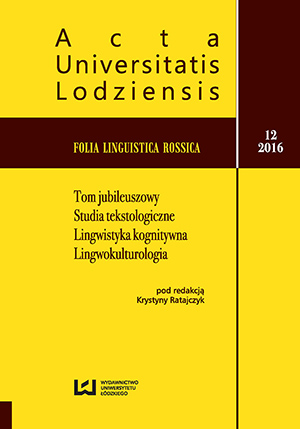Концепт «osud» ‘судьба’ в романе М. Кундеры «Книга смеха и забвения» в контексте славянской традиционной культуры
Concept „Osud“ ‘destiny’ in m. Kundera’s the novel the book of laughter and forgetting in the context of Slavonic traditional culture
Author(s): Eugene StefanskiSubject(s): Eastern Slavic Languages, Sociology of Culture
Published by: Wydawnictwo Uniwersytetu Łódzkiego
Keywords: Milan Kudera; “The Book of Laughter and Forgetting”; concept “Osud” ‘fate’;
Summary/Abstract: The author emphasizes the characteristic for traditional Slavic culture relations of concept “Osud” ‘fate’ with good and bad times. It is significant that many words with temporal meaning value throughout its history could have the semantics of fate in Slavonc languages. In Kundera’s novel concept “Osud” accompanied by the word skvrna ‘spot, evil’, which is associated with the concept of ritual impurity caused by food-fasting.In the Mirek’s mind, the protagonist of the first part of the novel, his life is separated from the fate. It seeks to erase from his life everything, what is unworthy of its destiny. As a result, he rewrites history, like the totalitarian regime against which he fights.
Journal: Acta Universitatis Lodziensis. Folia Linguistica Rossica
- Issue Year: 2016
- Issue No: 12
- Page Range: 129-148
- Page Count: 10
- Language: Russian

